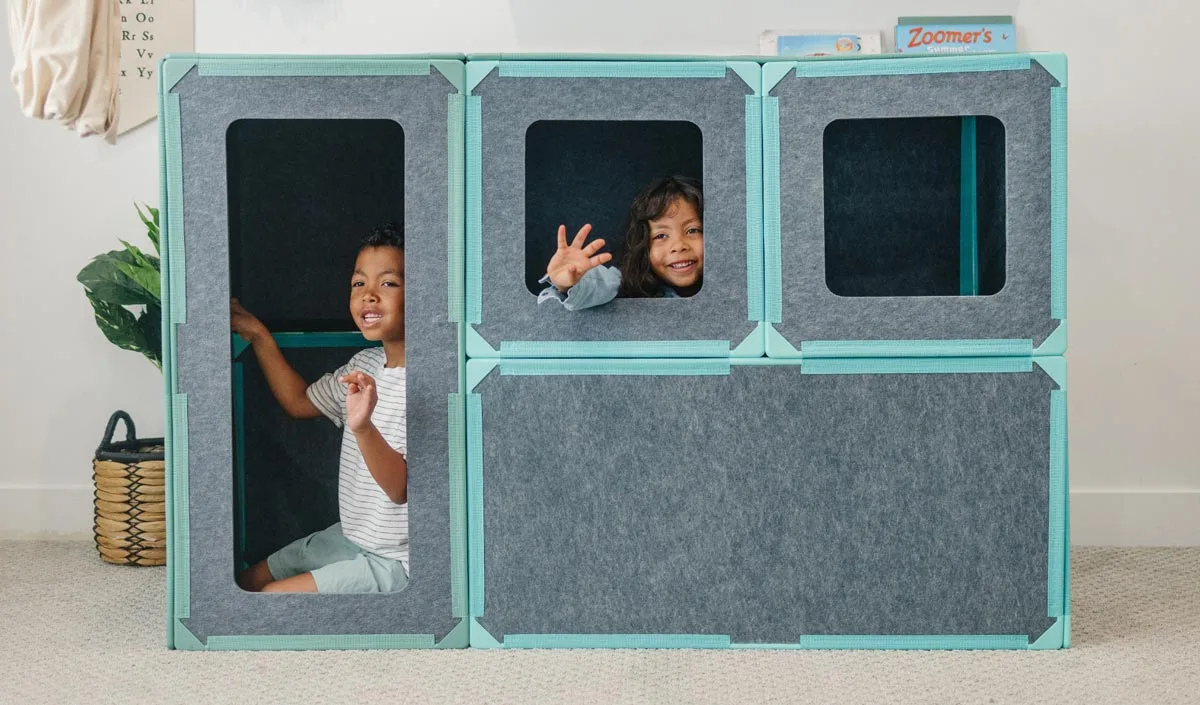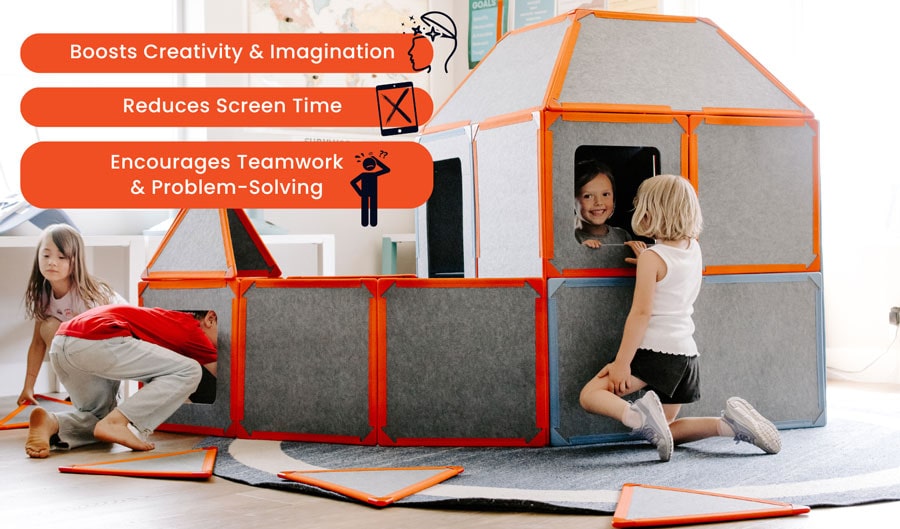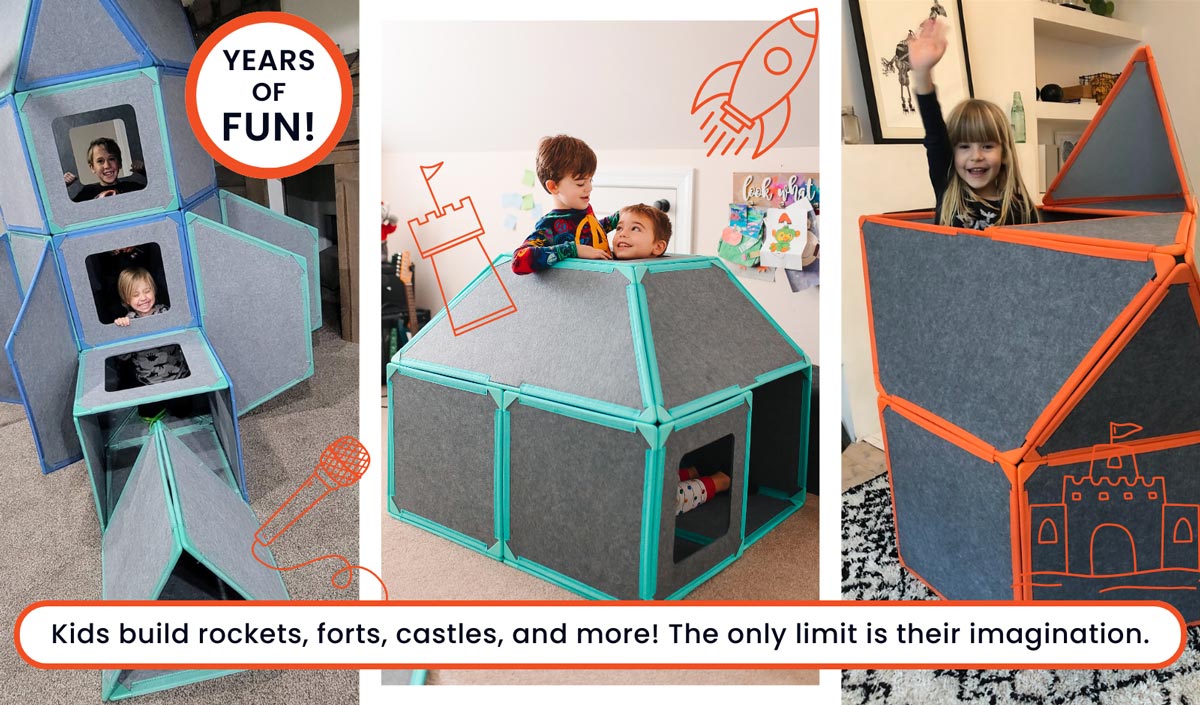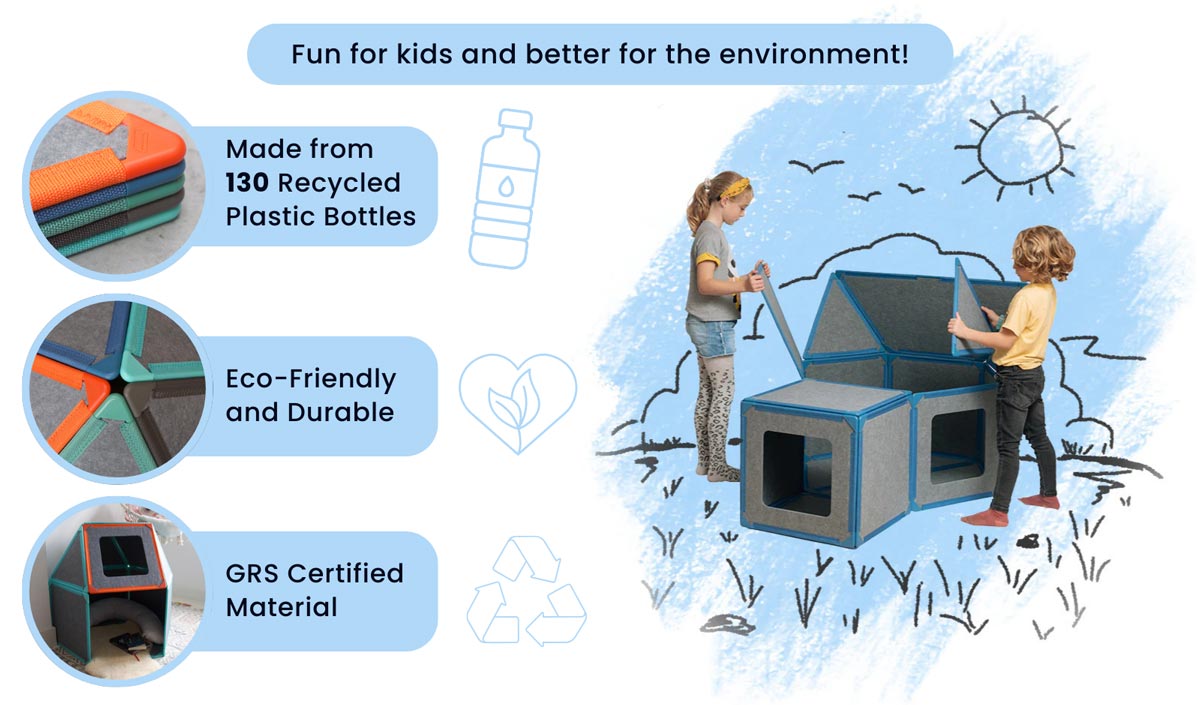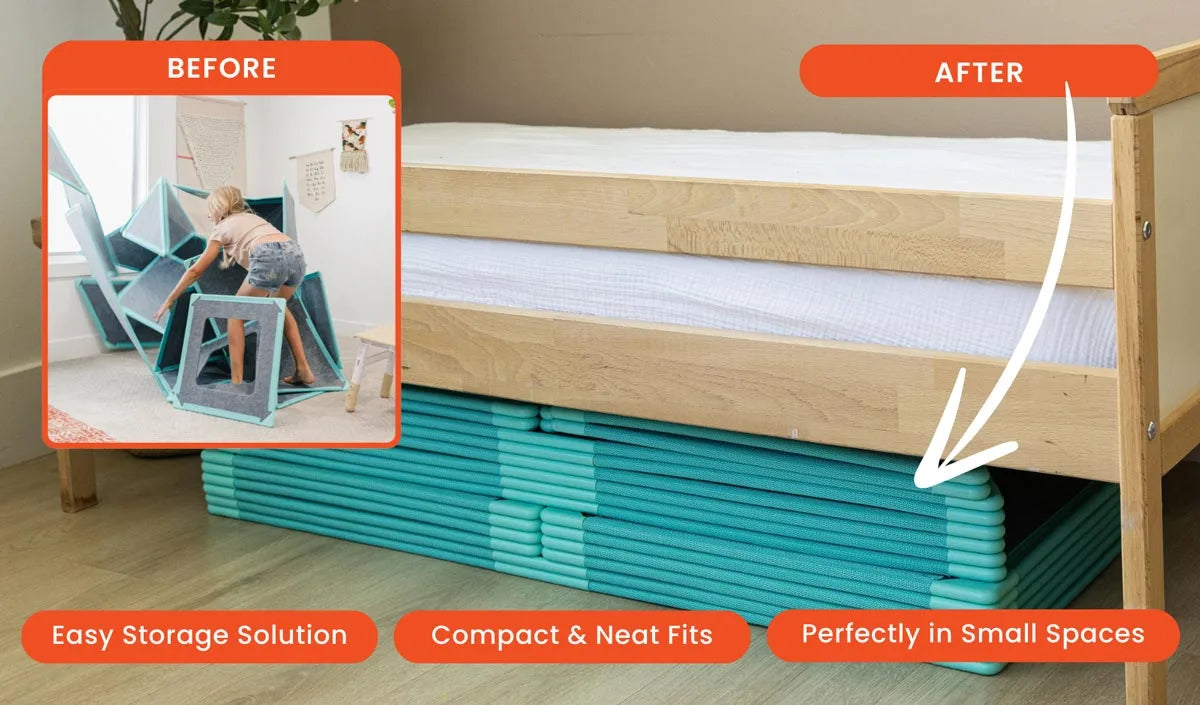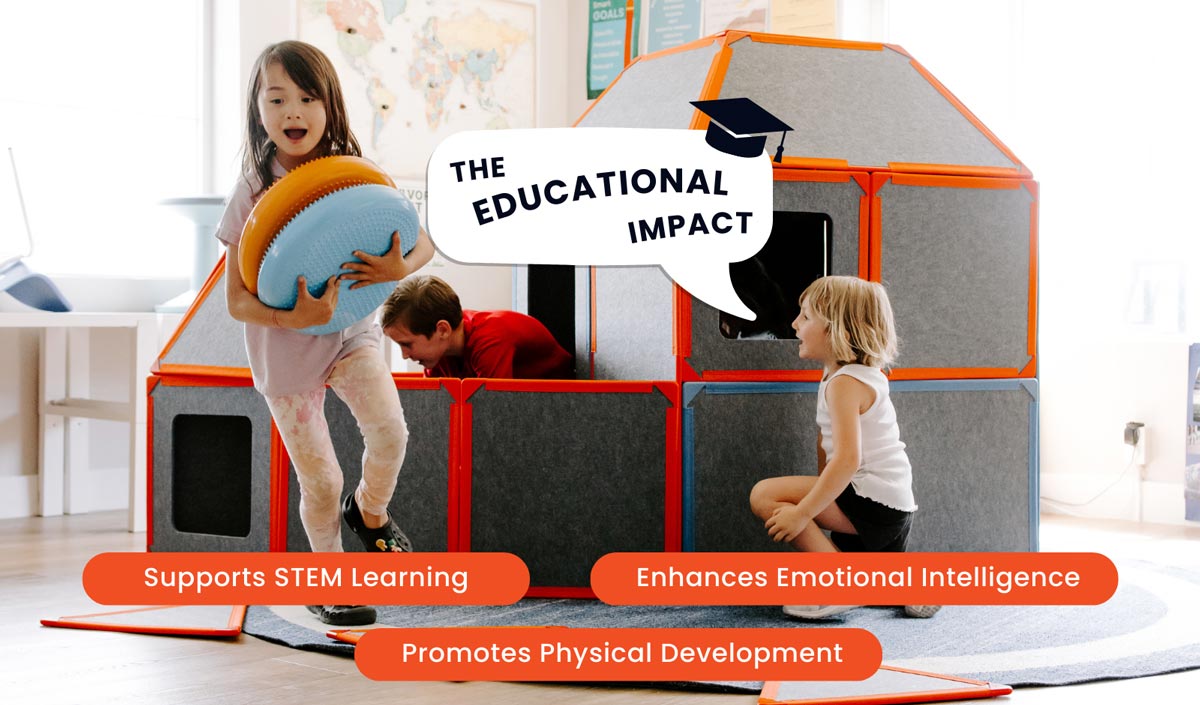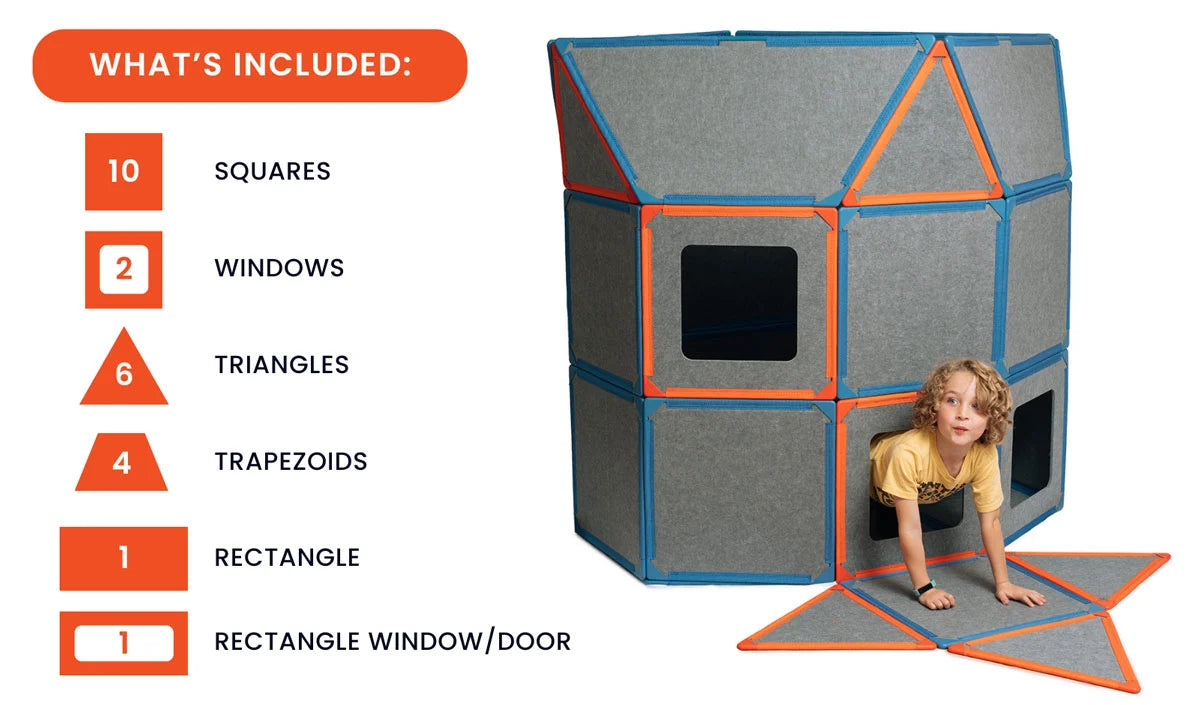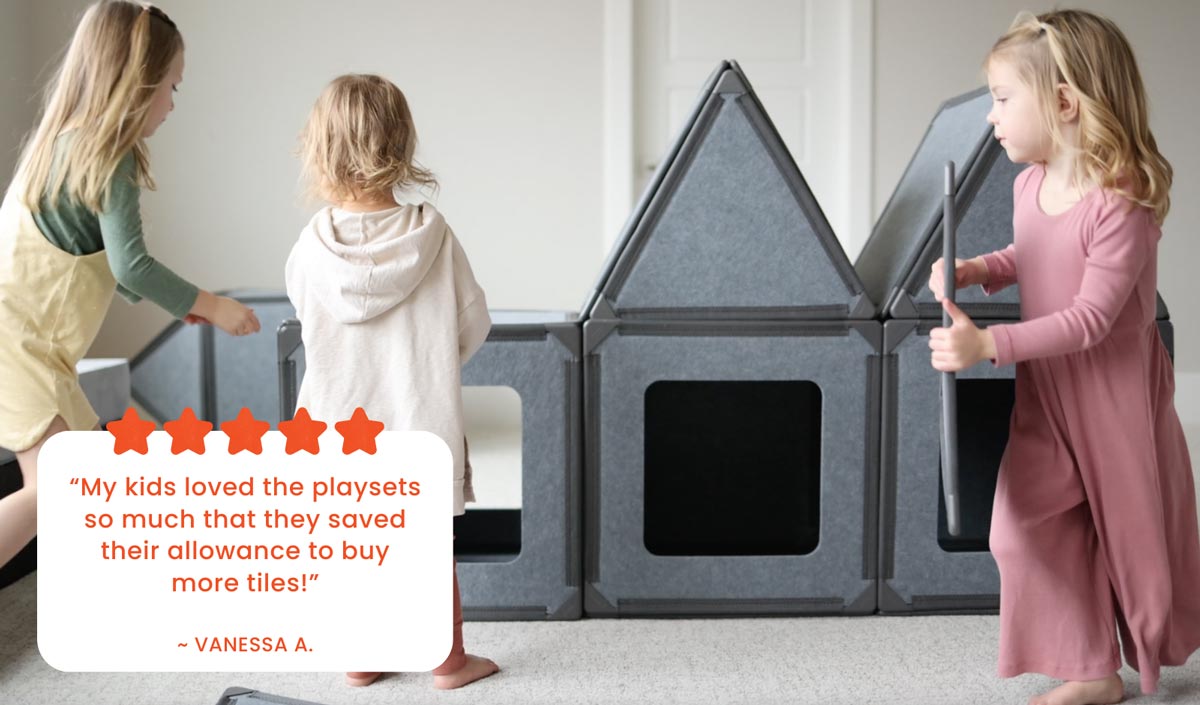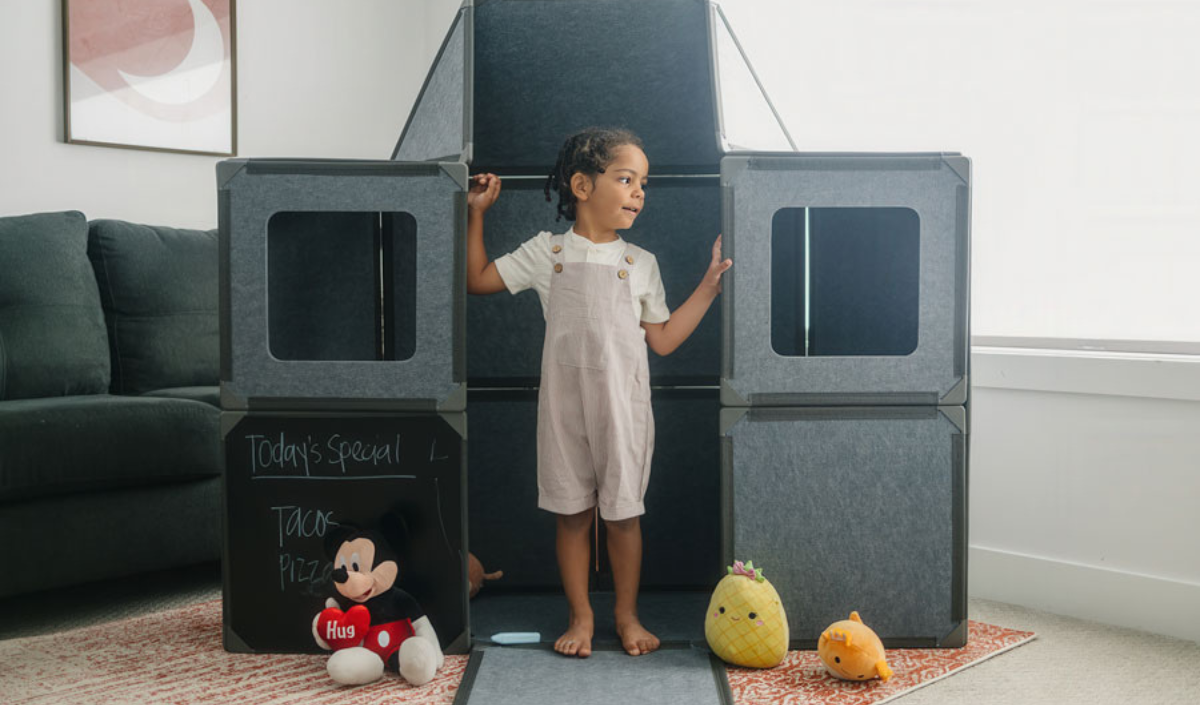How to Reduce Screen Time & Boost Child Development
Craig SpencerTired of screen battles and tech tantrums?
You’re not alone.
As screens dominate childhood, many parents are searching for healthy ways to reduce screen time without sacrificing learning or fun.
The truth is, too much screen time can hinder creativity, focus, and social growth—key areas of child development.
That’s why hands-on, screen-free activities matter more than ever.

Enter Superspace, an educational play system that turns everyday moments into meaningful, imaginative learning.
In this blog, we’ll explore why cutting back on screens is crucial, how hands-on play benefits your child’s development, and practical ways Superspace can help you make screen-free play a lasting habit.
Key Takeaways
- Excessive screen time can limit creativity, focus, and social development in children.
- Pediatricians recommend 1–2 hours of recreational screen time daily, yet most kids far exceed this.
- Hands-on play supports cognitive, physical, and emotional growth more effectively than passive digital activities.
- Superspace offers a screen-free, open-ended play alternative that encourages STEM learning and creativity.
- Building with Superspace improves problem-solving, teamwork, and spatial awareness through real-world interaction.
- Making screen-free play part of the daily routine helps children form lasting, healthy habits.
- Superspace empowers kids to think independently, collaborate, and build confidence—away from screens.
Table of Contents
- The Screen Time Struggle for Parents: Finding the Right Balance
- Why Too Much Screen Time Can Be a Problem
- The Benefits of Hands-On Play for Child Development
- How Superspace Creates a Screen-Free Alternative
- Encouraging Screen-Free Play as a Habit
- Investing in Play: A Smarter Alternative to Screen Time
The Screen Time Struggle for Parents: Finding the Right Balance
In a world where screens are part of everyday life, many parents find it challenging to manage their children’s digital habits.
While technology offers clear benefits—like access to educational content and entertainment—too much passive screen time can interfere with creativity, focus, and real-world interaction.
Studies show that children now spend an average of seven or more hours a day on screens, significantly exceeding the one to two hours recommended by pediatricians.
This overexposure has been linked to reduced attention spans, lower physical activity, and social withdrawal.
Limiting screen time isn’t just about turning off devices—it’s about offering meaningful, hands-on alternatives that inspire curiosity and learning.
That’s where Superspace comes in.
Superspace playsets are designed to engage children in open-ended, screen-free play that builds creativity, problem-solving skills, and confidence through real-world experiences.
In the sections ahead, we’ll explore the effects of excessive screen use, the benefits of hands-on play, and how tools like Superspace can help create a healthy, balanced play routine.

Why Too Much Screen Time Can Be a Problem
While screens offer convenience and learning opportunities, excessive use—especially when it replaces active play—can negatively impact a child’s development.
Pediatric experts recommend limiting recreational screen time to one to two hours daily, yet most children average more than seven hours a day.
This imbalance can interfere with essential developmental skills.
Here’s how:
- Creativity & Problem-Solving: Many digital activities follow set patterns, leaving little room for imaginative thinking. Open-ended play fosters curiosity, experimentation, and independent problem-solving.
- Social Skills: Too much solo screen time can reduce valuable peer interaction. Collaborative play helps children learn empathy, communication, and teamwork.
- Physical & Mental Health: Prolonged screen use is linked to poor posture, sleep issues, and sedentary behavior. It’s also associated with anxiety, attention difficulties, and reduced engagement in offline learning.
Rather than eliminating screens entirely, the goal is to create a balanced routine—one that makes room for activities that spark creativity, build real-world skills, and support healthier development.

The Benefits of Hands-On Play for Child Development
Hands-on play is essential for a child’s cognitive, social, emotional, and physical growth.
Unlike passive screen use, active play invites kids to explore, imagine, and engage directly with the world around them.
Through tactile experiences—building, testing, and creating—children strengthen their critical thinking and adaptability.
STEM-based toys and activities are especially effective at reinforcing these skills through experimentation and open-ended problem-solving.
Fostering Creativity and Collaboration
Hands-on play encourages children to think independently and work with others.
Whether they're building something solo or teaming up with peers, kids learn to communicate, compromise, and stretch their imaginations beyond preset boundaries.
Developing Problem-Solving and Resilience
When children face challenges during play—like balancing a structure or reworking a design—they build persistence and confidence.
These trial-and-error moments teach resilience and help them trust their own problem-solving instincts.
Supporting Physical and Motor Skill Development
Play that involves movement helps improve coordination, balance, and spatial awareness. It also keeps kids active, offering a much-needed counterbalance to sedentary screen time.
By engaging the whole child—mind and body—hands-on play lays a powerful foundation for lifelong learning.

How Superspace Creates a Screen-Free Alternative
Reducing screen time isn’t just about limiting devices—it’s about offering engaging, real-world experiences kids want to choose.
Superspace makes that choice easy, turning everyday play into a dynamic learning adventure rooted in creativity, movement, and collaboration.
Open-Ended Imagination
Superspace’s magnetic panels let kids build anything they dream up—forts, rockets, obstacle courses—without rules or instructions.
STEM in Action
As kids test and tweak their builds, they explore balance, structure, and cause and effect—bringing STEM learning to life through hands-on play.
Teamwork and Social Skills
Group builds naturally spark communication, collaboration, and problem-solving—far beyond what solitary screen time allows.
Confidence Through Creation
Every structure built (and rebuilt) reinforces persistence, independence, and a sense of accomplishment.
Active, Full-Body Play
From lifting panels to crawling through finished builds, Superspace encourages movement, helping kids stay active while learning.
Superspace replaces passive screen time with immersive, skill-building play that keeps kids engaged and growing—without ever needing a power button.

Encouraging Screen-Free Play as a Habit
Turning screen-free play into a daily habit starts with making it fun, consistent, and easy to access.
Here are five simple ways to help your child unplug and dive into more meaningful, hands-on experiences:
Set Daily Screen-Free Routines
Designate consistent times—like after school or before dinner—for play without devices. A predictable rhythm helps kids know when it’s time to unplug.
Introduce Creative Building Challenges
Spark excitement with playful prompts like “Can you build a rocket ship?” or “How tall can your tower go?” These small goals encourage imagination and problem-solving.
Play Together as a Family
Join the fun by building alongside your child. Shared projects strengthen bonds and show that creative play isn’t just for kids.
Keep It Fresh with Rotating Materials
Refresh interest by swapping in new Superspace Add-On Packs or rearranging your play space. A small change can unlock big creativity.
Encourage Imaginative Storytelling
Invite kids to transform their builds into living stories—castles, stores, hideouts—and ask open-ended questions to fuel the narrative.
By weaving these simple habits into your daily routine, screen-free play becomes not just an alternative but a favorite part of your child’s day.

Investing in Play: A Smarter Alternative to Screen Time
As technology continues to shape childhood experiences, finding creative play alternatives has never been more important.
While screens offer value, hands-on play remains essential for cognitive, emotional, and social growth.
Reducing screen time doesn’t mean sacrificing fun or learning.
Superspace turns everyday play into a creative, hands-on experience that builds confidence, collaboration, and critical thinking.
It’s more than a toy—it’s a tool for lifelong learning.
Ready to make screen-free play the highlight of your child’s day?


